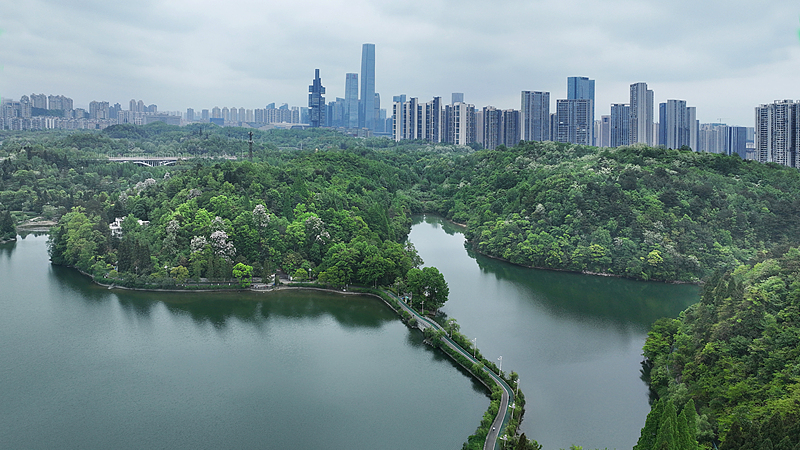At the end of April, the first draft of China’s Environment Code was presented. The second large legislative undertaking in this decade for the Chinese legislators after the introduction of the Civil Code, the Environment Code harmonises the corpus of over 30 environment laws, amounting for 10% of the overall legal framework in the country. The focus on environmental legislation has been consistent in the Chinese political space this century, under the rallying call for ecological civilisation. What does an ecological civilisation entail, from a Chinese perspective?
Building upon the foundations of Marxism, socialist ecological civilisation is the theory and practice of China’s approach to environmental challenges by means of socialism.
The first reference to ecological civilisation in the political space dates back to the Seventeenth National Congress of the Communist Party of China (CPC) in 2007. The concept existed in academic circles before: since the eighties, Chinese Marxists spoke of a socialist ecological civilisation as means of departing from the capitalist mode of production and exploitation. Within this vision, the relationship between humanity and nature, in dire need of restructuring, can only be genuinely changed by means of socialism.
Two excellent and accessible sources on ecological civilisation are Chen Yiwen’s articles “The Dialectics of Ecology and Ecological Civilization”1 and “Marxist Ecology in China: From Marx’s Ecology to Socialist Eco-Civilization Theory”2 in Monthly Review (April 2025, and October 2024, respectively). In the former, the author explains the notion of civilisation as both an opposition to barbarism and to decadence: a society which reconciles humanity and nature. The notion of ecology is not to be taken as purely ecocentrist, but rather one of consciousness: as the civilisation develops, it consciously recognises this development as one of humanity and nature in the joint metabolic sense.
In the second article, Chen Yiwen speaks of two interpretations of the notion of ecological civilisation. In one, ecological civilisation is the next step in the evolutionary sequence, after industrial civilisation; in the other it is another dimension in which the civilisation exists, alongside material civilisation, political civilisation, spiritual civilisation, and social civilisation. The socialist prefix here comes as the identifier of the approach to environmental problems, development, and path to communism.
For all the complexity of China managing its relationship with markets, capital, and the international capitalist system, the socialist ecological civilisation theory rejects capital and the market as the generative forces of environmental action, making it a social and political project centred within a socialist programme. The framework of ecological civilisation is fundamentally opposed to green capitalist interventions that do not challenge capitalist principles, but reinforce them.
When socialist ecological civilisation puts the human in its centre, it is from the humanist angle, rather that of anthropocentrism; instead of exploitation, it centres justice and care. In this light, the oft-quoted line from Xi Jinping sums up ecological civilisation well: “We want to have not only mountains of gold, but also mountains of green. If we must choose between the two, we would rather have the green than the gold. And in any case, green mountains are themselves gold mountains.” In the dialectical relation of development and the preservation of a healthy, flourishing environment for humanity to live in, there is one civilisational priority.
It remains to be seen how well the concept of ecological civilisation with Chinese characteristics travels internationally, and what would the application of the theory in different material conditions be like. For China, the implementation of the ecological civilisation vision is helping avoid the environmental pitfalls capitalist states are facing at the moment. And as Zhou Enlai famously said about China avoiding the environmental mistakes in industrialisation that capitalist states made—if this could not be achieved, would China deserve to be called socialist?






